I love books of the year lists. I like the sensation of snooping through other people’s shelves, and the eternal hope of finding something brilliant and unexpected to read.
I will be posting separately about my year of reading, reviewing the ups and downs, and setting out my resolutions for 2024, so now we can crack right on. In no particular order, here are the books I most enjoyed reading in 2023.
Titles below link to longer book descriptions, and the option to purchase from the wonderful Bookshop.org.*
Brian is a novel for all the oddballs who find their purpose in life through the appreciation of art. I wonder why I’m starting with this one…
Brian lives alone in a modest flat. He works for the council, lunches at the same café every day, and does his utmost to avoid any drama or incident. Then Brian makes an uncharacteristic change, and starts going to the BFI cinema at the South Bank each evening. Gradually he forms his first connections with other people, a group of BFI regulars, each with their own territorial specialisms. While this is a book ostensibly about film, you don’t need to be a tremendous cinephile to enjoy it. Cooper writes about films engagingly even if you are completely unfamiliar with them, which is a pretty impressive feat.
By devoting his evenings to visiting the cinema with this curious bunch of amateur film buffs, Brian finds his world transformed. He explores a new cultural landscape, finds a sense of real belonging, learns how to be content, and to reflect on his past. This short novel beautifully reveals the huge tragedies that can lie behind ordinary lives. It’s sort of like a melancholy Francis Plug book, which I can assure you is high praise indeed.
Dreaming The Beatles by Rob Sheffield (2017)
On the topic of taking art seriously… nobody is more serious about their fandom than Beatles fans. One of my favourite podcast discoveries this year has been Nothing is Real, the most charming and least-intimidating of Beatles podcasts. In one of their episodes about books, they recommended Dreaming the Beatles as enjoyably different from typical Beatles literature, and I couldn’t agree more.
Dreaming The Beatles is a collection of essays, and reading it is like having a brilliant chat in the pub with the nicest of superfans. It’s a book about art, fandom and the phenomenon, rather than the biographies and technical minutiae. It’s a perfect read for anyone who is still fascinated by how and why The Beatles became the biggest cultural phenomenon in the world, and it immediately won a place in my heart for having a whole chapter on the brilliance of Ringo Starr.
Bizarrely this gem seems to be out of print, but you should be able to track down a paperback copy with ease.
Old Filth by Janet Gardam (2004)
My favourite novel of the year. I checked it out of the library on a whim and was completely caught off-guard by how extraordinary it is. Old Filth is a stunningly intimate character study, and the best book I have ever read about the waning days of the British Empire.
Old Filth is the story of Sir Edward Feathers, now a retired senior judge, who was born in Malaya and sent by his father, a traumatised first world war veteran, to be raised in cold institutions across the colonies. Filth’s life takes stiff-upper-lipped anguish to dazzling heights, and is loosely inspired by the early days of Rudyard Kipling. The title comes from the now-forgotten moniker, ‘Filth - Failed in London Try Hong Kong’, and this, coupled with the subject matter of stuffy old judges and relics of empire might not sound appealing, but I can assure you, Old Filth is a masterpiece.
Old Filth is the first in a trilogy, but all three can be read as standalone titles. I enjoyed it so much that I immediately purchased the whole set, but have held back from reading the next one as I don’t want the series to be over so soon.
Absolutely and Forever by Rose Tremain (2023)
This is pretty much everything I want in a novel, peak comfort reading. A lonely woman navigating life and love in the 1960s, with a repressed colonel father, disinterested mother, activist best friend and the odd trip to Paris. It’s like an Anita Brookner without the academic rigour and saltiness, and a perfect companion to Tessa Hadley’s more substantial Free Love.
As ever, don’t worry about the plot. When your protagonist conveniently inherits an enormous house right when they need to leave their marital home, you just have to take another sip of gin and go along with it. This is a book about atmosphere, and the delusions we can convince ourselves of when we’re unhappy. In fewer than 200 pages we get entire lives distilled, which is no mean feat. It also gets extra points for taking horses seriously.
Erotic Vagrancy by Roger Lewis (2023)
As everyone has already said, Erotic Vagrancy really is superb. Once again, I am always happy to wallow in the murkiness of the 1960s and 1970s, and this fit the bill perfectly.
For Lewis, Burton is all mind, a cerebral force torn apart by booze, whereas Taylor is all body, a quivering, heaving creature of extraordinary proportions and ailments. Burton is revealed as a far nastier, bleaker soul than I had previously understood, while Taylor comes as shallow, scheming and a surprisingly astute financial strategist.
Biographies which play with the form are probably my greatest reading pleasure, but despite the triumphs of Craig Brown they’re still sadly rare. I was charmed by Lewis’ nod to Brown, exclusively referring to Princess Margaret throughout Erotic Vagrancy as Ma'am Darling. My only, tiny reservations are that this is more about Burton than Taylor, and I longed for some more photos. Nevertheless, this is a glorious book, and I hope loads of people got it for Christmas and are now marvelling at Lewis’ achievement.
Homesick by Catrina Davies (2019)
I had a brilliant time reading this book, which is gorgeous and angry in equal measure.
Davies grew up in Cornwall, and Homesick explores her personal history of navigating the so-called housing market, alongside the national disaster of British property. She handles class and economics as deftly as she does nature, and demonstrates how houses can trap us as much as they can free us. Feeling at home is not straightforward, and as Davies recounts, it’s only getting harder.
If this is all sounding a bit gloomy, Davies enlivens things with her adventurous spirit, making music and friends from her shed home. Homesick covers similar territory to Natasha Carthew’s Undercurrent, which I also enjoyed, but Homesick felt more ambitious, more political and poetic. It would also sit nicely alongside Rebecca Smith’s Rural, which I admired, but felt took an overly narrow view of rural life.
Napoleon: A Life in Gardens and Shadows by Ruth Scurr (2021)
I read a few books about Napoleon this year (standard behaviour for me), and this is was the most interesting. It might sound like a gimmick, using Napoleon’s gardens to examine his life, but Scurr is too talented for this not to be interesting.
Scurr covers the whole gamut, from Corsican olive groves to Josephine's Parisian menageries, the garden of Hougoumont at Waterloo, and the rocky plot at St Helena where he spent his final days. While Scurr presents an unusual Napoleon, a wholly human figure pottering about in an old straw hat, for me this isn’t a book about gardening. By examining Napoleon’s relationship to nature, Scurr has written a fascinating book about the enlightenment, and how these ideas shaped Napoleon’s life and world.
You certainly don’t need to be a gardener to enjoy this book, but if you do find yourself wanting to read more about gardens after this, I recommend Penelope Lively’s Life in the Garden.
The Scent of Flowers at Night by Leïla Slimani (2023) translated by Sam Taylor
Books about writing can be very hit and miss. I found Murakami’s latest offering mostly filler, but The Scent of Flowers at Night was a real pleasure. Based around an evening Slimani spent alone in the Venice Punta della Dogana museum (as you do), she wanders and wonders around, musing on the influence of reading and writing on her life, from Morocco to France and to literary stardom.
I’ve been a fan of Slimani’s for years, and vividly remember seeing her speak in a dingy Waterstone’s basement when her first novel appeared in English. She was a force of nature, unashamedly intellectual and unwilling to pander. In that sense she reminded me of when I saw AK Blakemore interviewed by Andy Miller in Faversham. This is a very short book and a genuine insight into the solitude and transformation that can come with creativity.
Think Like a Woman by Regan Penaluna (2023)
This book has the bad luck to have an awful title, dreadful cover and naff quote on the front. In fact, I have no idea how I ended up owning a copy, but I’m glad that I did.
Think Like a Woman is a combined memoir and collective biography, similar to A Life of One's Own by Joanna Biggs. Books like these are ten-a-penny nowadays. Some are fine but many are lazy hack-work, rehashing the same tired anecdotes for the umpteenth time. I truly feel like I’ve reached Virginia Woolf saturation point, and cannot read another take on her life. What makes Penaluna’s book different is that her territory is philosophers rather than novelists. Penaluna intersperses genuinely revealing stories from her life as a philosophy academic, with those of Damaris Cudworth Masham, Mary Astell, Catharine Cockburn and Mary Wollstonecraft.
This book made the list because it reminded me of how much I enjoy reading philosophy, and how bored I am of reading about the same few lady novelists who’ve begrudgingly been allowed into the cannon. On this note, an honourable mention for Austin’s Living for Pleasure, which I found very encouraging this year.
There were a few more books I would have included on this list, but I’ve already covered them in the Suburban Shelves archive. These were:
Jillian by Halle Butler (2019) - a genuinely funny novel about what it means to have a colleague.
This Devastating Fever by Sophie Cunningham (2023) - a strange, inventive novel about art, empire, memory and Leonard Woolf, which must be good considering I was just slagging off his wife.
Dog Hearted (2023) - a collection of essays about the love for dogs, not one to read if you’re separated from your pooch over the holiday season.
Spare by Prince Harry (2023) - an extraordinary artefact of our times, and I’d be lying if I didn’t say I enjoyed the hell out of reading it.
Prudence by Jilly Cooper (1978) - quite possibly her most ridiculous romance novel, which is saying something.
*All books linked in this post go to the Suburban Shelves bookstore at Bookshop.org, from which I receive a very small amount of affiliate proceeds. For this particular post, any proceeds will be donated to the Red Cross emergency Gaza appeal. If you would also like to donate to this cause, you can do so here.

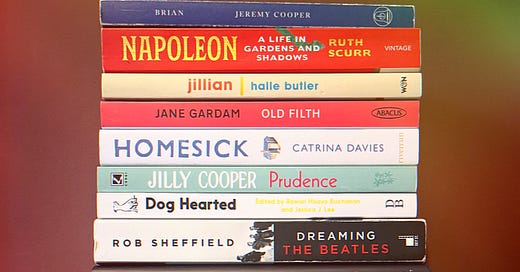


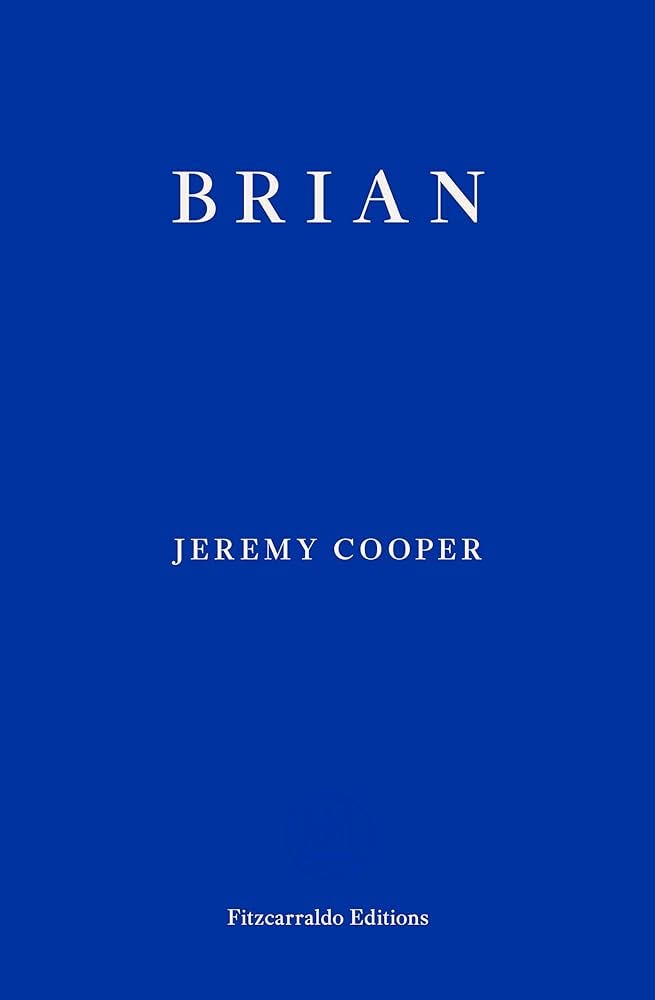
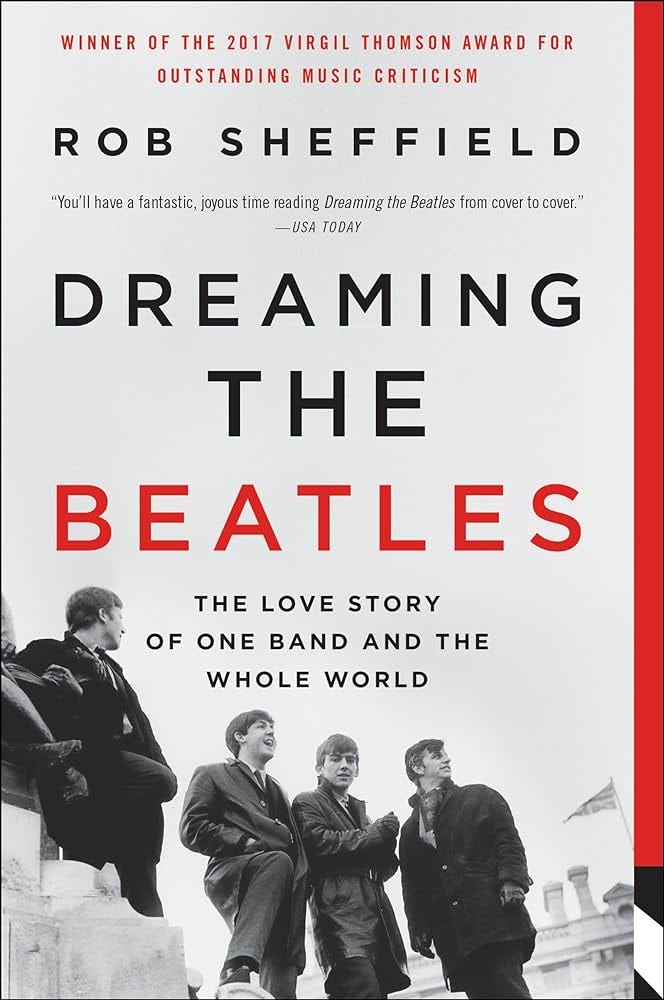
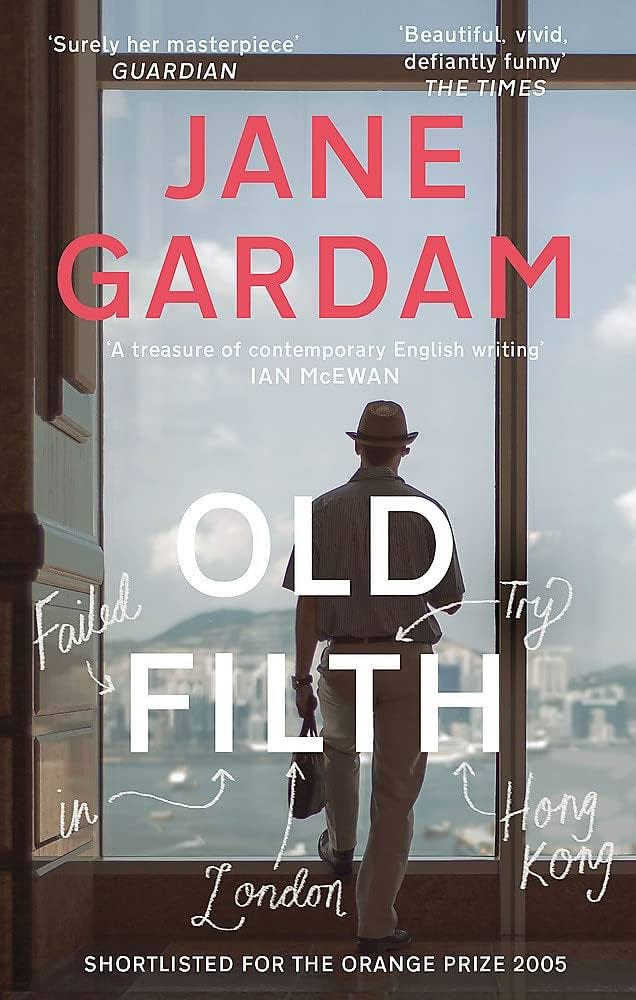
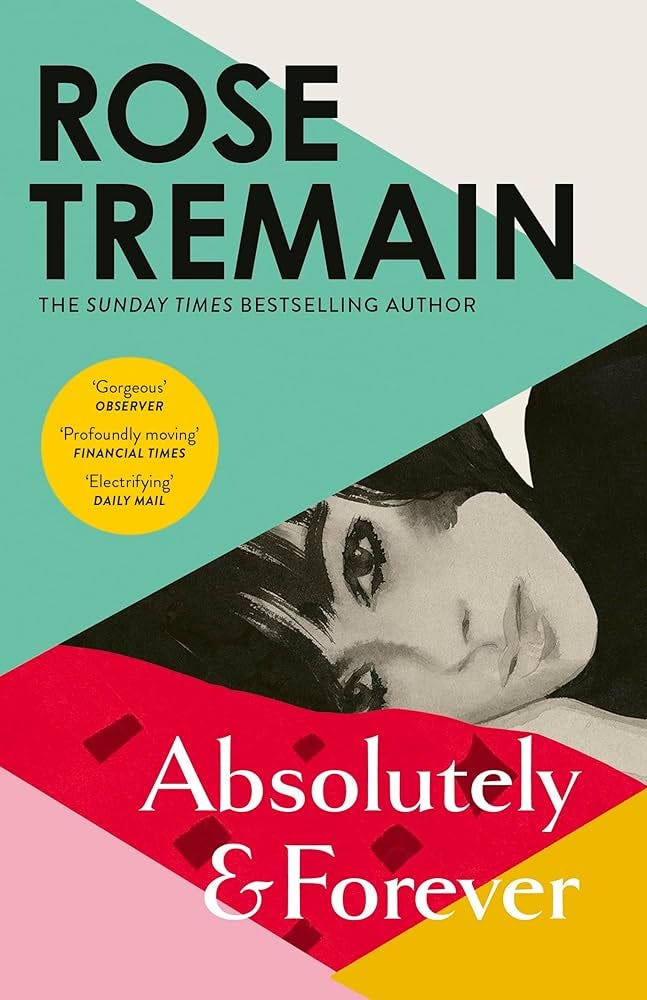
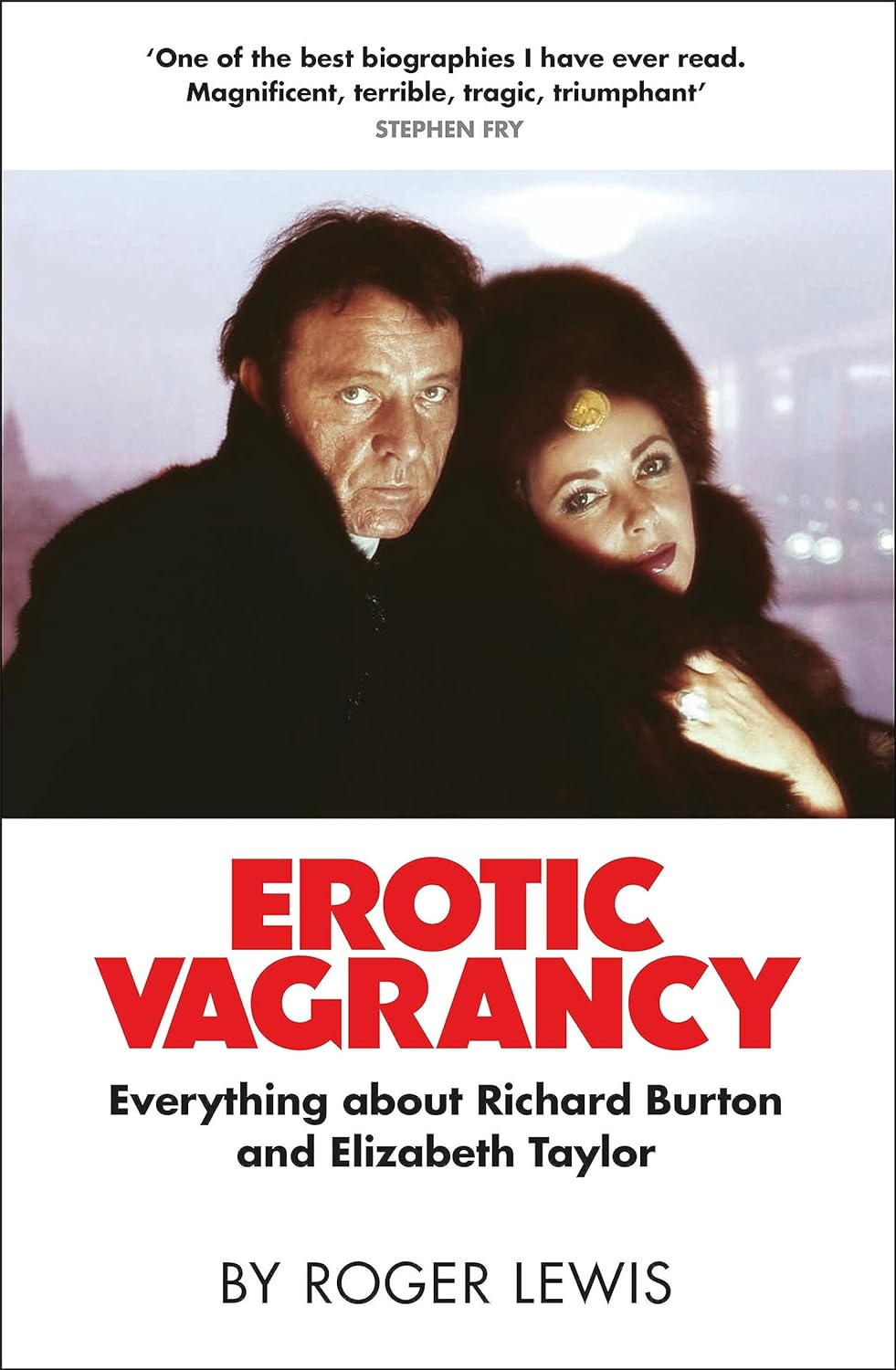
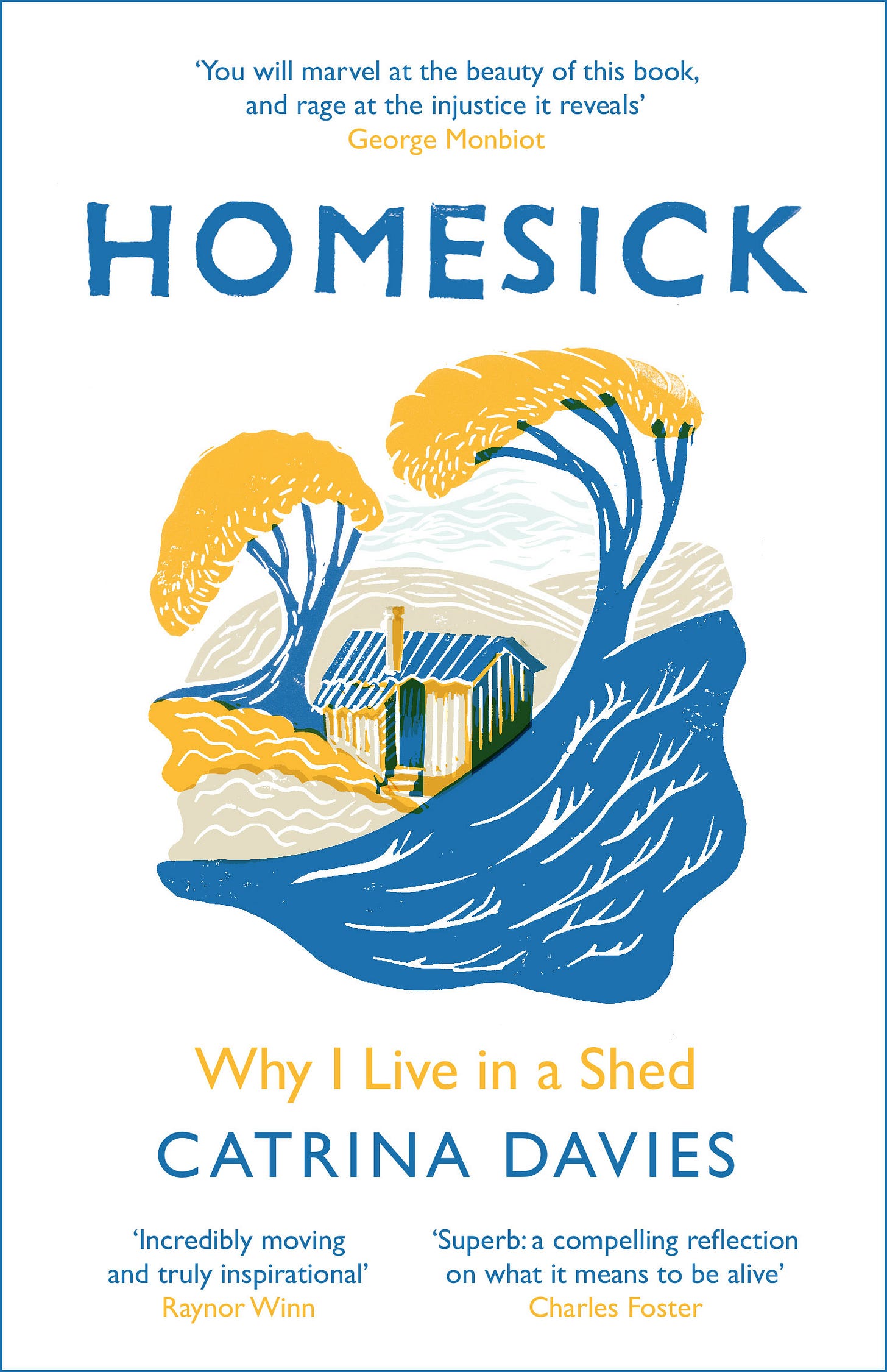
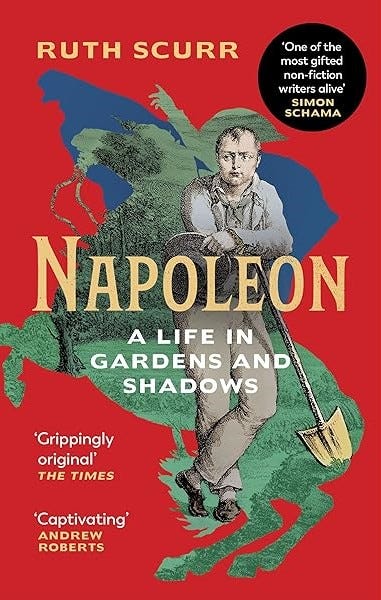
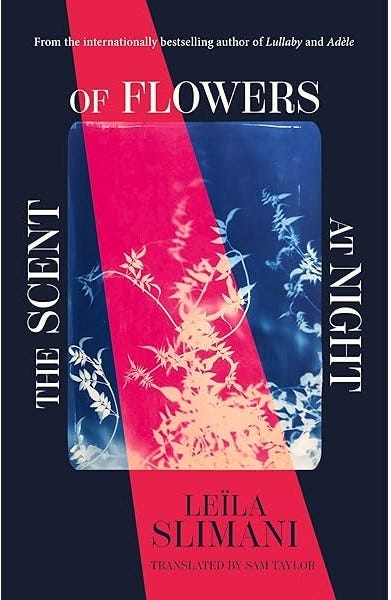
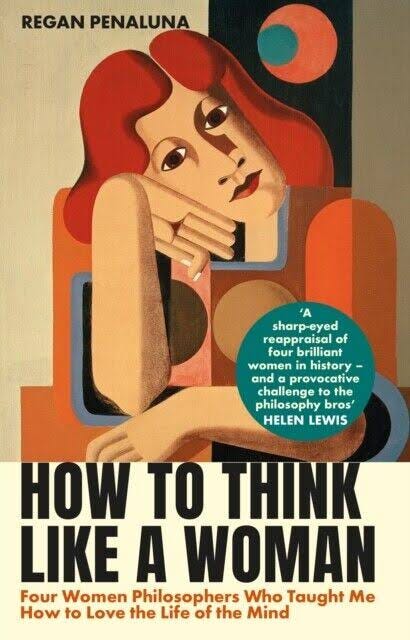
Thanks, Lydia. Have ordered a couple. :D